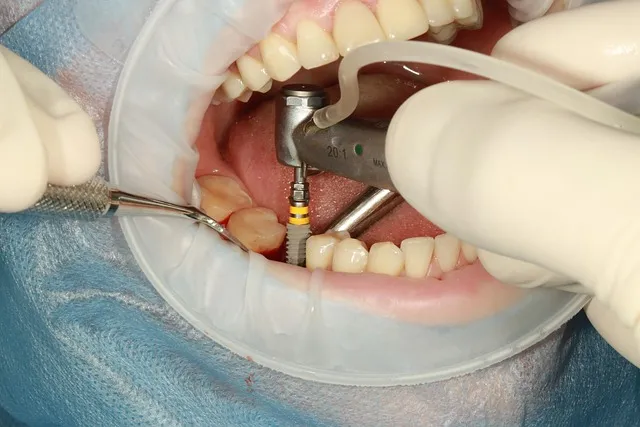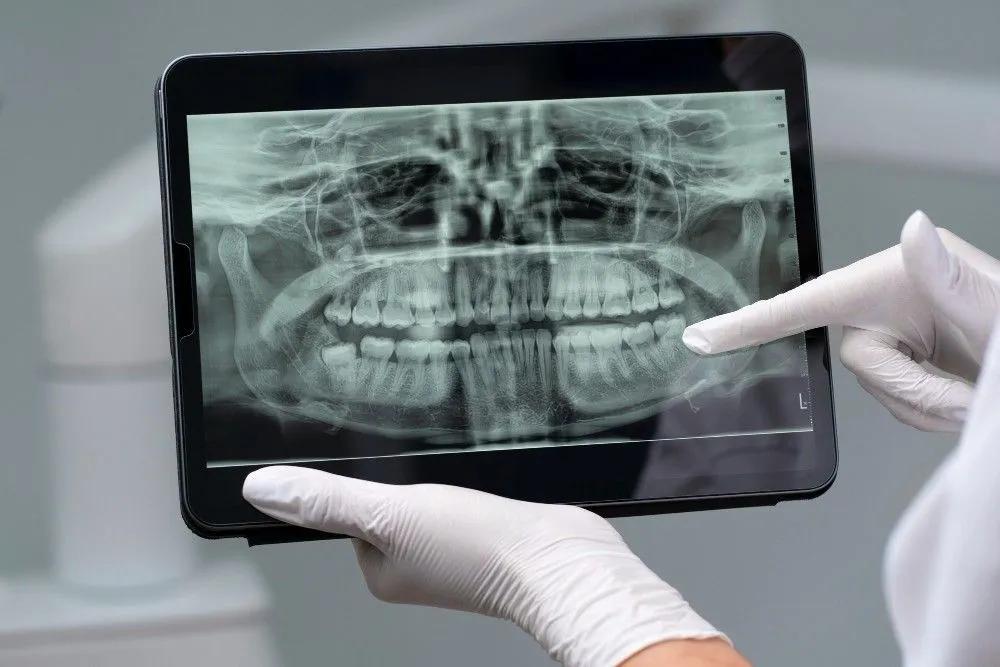Demineralization due to acid foods and harmful bacteria in the mouth can lead to loss of minerals from enamel, leaving the tooth prone to sensitivity, decay, and cavities. But through remineralization, the teeth can naturally heal and strengthen. If you are wondering how to remineralize teeth, explore this article and learn about the effective natural ways to repair tooth enamel. Also, you can try professional treatments. But first know what remineralization is and how it works. Keep reading!
What Is Remineralization and Why Does It Matter?
Remineralization is a process where minerals such as phosphate, fluoride, and calcium are deposited again into the tooth enamel. It helps repair the early damage caused to enamel which makes the teeth stronger and unaffected by decay. It generally occurs naturally through saliva in the mouth. However, it can also be supported by some effective oral habits and nutrition.
How Remineralization Works?
This is how the tooth remineralization process works:
-
Saliva Naturally Protects Enamel: Saliva contains calcium, phosphate, and proteins that protect enamel and fix damage. Also, it cleans stuck food, reduces further risk of enamel erosion, and balances mouth acids.
-
Fluoride Enhances Remineralization: Fluoride found in toothpaste, drinking water, or mouthwash can increase the remineralization process by attracting more minerals to enamel, making it resistant to acid and stronger.
-
Diet Promotes the Process: Eating mineral-rich foods offers vital nutrients that support remineralization.
How to Remineralize Teeth? 10 Effective Natural Ways
Follow these simple, natural ways to remineralize teeth and keep them healthy:
1. Use Fluoride Toothpaste
-
Brush at least 2 times per day with the help of fluoride toothpaste to get rid of plaque, restore lost minerals, and strengthen the enamel.
-
Do not immediately rinse your mouth after brushing to let the fluoride work for a longer time.
2. Consume Mineral-Rich Foods
A diet rich in the following minerals is crucial to remineralizing tooth enamel naturally and maintaining healthy teeth.
-
Calcium-rich foods: Add dairy products such as cheese, milk, and yogurt, fortified plant-based milk, nuts, and leafy greens to your daily diet regimen.
-
Phosphorus-rich foods: Consume foods like eggs, beans, fish, nuts, and meat as they are great sources of phosphorus.
-
Magnesium-rich foods: Have whole grains, nuts, leafy greens, and seeds.
-
Vitamin D-rich foods: Include fatty fish, egg yolks, cheese, and cereals in your diet and get sunlight.
3. Limit Sugary and Acidic Foods
-
By feeding on sugar, mouth bacteria produce acid that attacks enamel. Also, acidic drinks and foods like soda, citrus fruits, and wine can damage enamel over time.
-
So, avoid or reduce intake of these foods. If you consume, clean your mouth afterward to balance the acids.
4. Chew Sugar-Free Gum
-
Chewing gums after meals helps stimulate the release of more saliva, aiding in the remineralization process. Also, it protects the tooth enamel.
-
Try xylitol-containing gums as xylitol is a natural sweetener that can neutralize acids and support oral health.
5. Use Remineralizing Mouthwashes
-
Remineralizing mouthwashes contain calcium or fluoride phosphate that may support remineralization by replenishing lost minerals and protecting the tooth from demineralization. They can maintain pH levels in the mouth, fight off decay, and alleviate enamel erosion.
-
Just swish your mouth using a fluoride mouthwash per day, especially before bedtime for added protection against decay.
6. Consider Probiotics
-
Choose probiotics that contain strains such as bifidobacterium, salivarius, or reuteri which are produced in the mouth naturally. This helps replace good bacteria without introducing any harmful strains.
-
Use probiotic-rich foods like yogurt, almond buttermilk, soft cottage cheese, or probiotic supplements daily for better results.
7. Limit Starchy Foods
-
Carbohydrate-loaded starchy foods like bread, potatoes, and rice can increase fermentable sugar amount in the mouth which causes tooth erosion.
-
Research shows that starchy foods which are rich in sucrose can increase the risk of dental caries. For instance, sweetened rice can create teeth issues, while plain rice can't.
8. Manage Dry Mouth
-
Dry mouth can happen due to insufficient saliva production, medication use, or dehydration, impairing the remineralization process.
-
The tip is to stay hydrated, avoid alcohol and caffeine, and use over-the-counter (OTC) saliva substitutes.
9. Oil Pulling
-
The method involves 10-20 minutes of oil pulling using oil like coconut oil around the mouth. The antimicrobial and antioxidant properties of oil eliminate harmful bacteria in your mouth, protecting you from decay and supporting enamel remineralization.
-
Practice oil pulling after brushing the teeth twice a day; in the morning and also before bed.
10. Drink Plenty of Water
-
Drinking a lot of water in a day aids in stimulating saliva production which, in turn, promotes the remineralization process and balances acids.
-
You can drink fluoridated water to support the remineralization process by removing harmful bacteria from the body.
Note: In case these methods do not work, consult the dentist for professional treatment to remineralize your teeth.
Professional Treatments to Support Remineralization
While natural treatments are effective, professional treatments can provide additional support for the remineralization process. These treatments include:
1. Fluoride Treatments
Dental professionals apply highly concentrated fluoride gel or varnish to damaged teeth to add a protective layer. This helps improve remineralization and strengthen enamel.
2. Dental Sealants
Sealants are the protective coatings that are applied to the tooth's chewing surfaces. They aid in protecting from decay and preserving enamel integrity.
3. Calcium and Phosphate Toothpaste or Mouthwash
Dental professionals may also prescribe specifically formulated toothpastes that contain calcium and phosphate. These toothpastes and mouthwashes can ease remineralization of enamel during the cleaning process.
These professional treatments combined with at-home care can help maintain optimal enamel and dental health.
What Causes Demineralization of the Enamel?
Understanding the factors that cause demineralization and increase the need for remineralization can help you avoid them:
-
Acidic foods & drinks: Citrus fruits, coffee, and soda are common culprits of enamel erosion.
-
Poor oral hygiene: This allows plaque accumulation which contributes to the production of acids from the harmful bacteria.
-
Dry mouth: Limited saliva flow restricts the ability of the mouth to balance acids and remineralize the tooth.
-
High sugar intake: Sugary foods and drinks feed bacteria that are responsible for acid production which gradually weakens tooth enamel.
-
Bruxism (teeth grinding): Grinding teeth at night can lead to enamel wear and demineralization.
How Long Does It Take to Remineralize Teeth?
It generally takes 3 to 4 months to remineralize the teeth. However, the process can vary based on the severity of enamel damage. For instance, early enamel lesions or little enamel defects can repair faster compared to deeper damage.
A study states that toothpaste containing nano-hydroxyapatite can support remineralization of the early enamel damage in only around 8 weeks. Nano-hydroxyapatite strongly binds with the fragments and proteins of bacteria and plague and kills them. To repair tooth enamel completely, consistently follow proper oral hygiene, consume a well-balanced diet, and use remineralizing products.
Is it Safe to Remineralize Teeth Daily?
Yes, you can safely remineralize the teeth daily, especially if you are using remineralizing products such as nano-hydroxyapatite toothpaste. This product is safe and effective and helps protect and rebuild tooth enamel without any harm. Using it every day can keep the teeth strong and maintain good dental health.
Just always remember to follow proper oral routines like brushing twice, flossing, and seeing a dentist regularly.
Additional Tips to Maintain Tooth Enamel Strong and Healthy
Consider these tips to keep your tooth enamel strong and healthy:
-
Brush and Floss Daily: Brush your teeth twice and floss once a day using fluoride toothpaste to get rid of plaque and strengthen the enamel.
-
Avoid Acidic & Sugary Foods: Make sure to stop eating these foods to prevent the risk of tooth decay and enamel erosion.
-
Stay Hydrated: Drink water throughout the day for effective saliva production which aids in protecting enamel and maintaining acids.
-
Follow a Healthy Diet: Consume foods rich in calcium, vitamin D, and phosphorus to boost the remineralization process and improve tooth enamel strength.
-
Use Toothbrush with Soft Bristles: These types of toothbrushes assist in gentle cleaning without causing any damage to the enamel.
-
Clean Mouth After Consuming Foods: Wash your mouth with fluoride mouthwash or plain water after consuming acidic foods to balance the acid level in the mouth.
-
Use Mouthguards (in Case of Teeth Grinding): Protect the enamel using a custom-fitted mouthguard in case you have the habit of grinding your teeth.
-
Attend Dental Checkups Regularly: Consult a dentist regularly for effective cleaning and early detection of damaged enamel or any dental problems.
Summing Up
These tips on how to remineralize enamel can help fix damaged enamel and overall oral health. From using fluoride toothpaste, consuming mineral-rich foods, avoiding acidic or sugary foods, etc. you can promote remineralization and keep enamel strong. Additionally, make sure to consistently follow a good oral care regimen to maintain overall dental health!
Frequently Asked Questions
Can brushing too hard prevent remineralization?
Yes, brushing very hard can damage the enamel and make the remineralization more challenging.
Can all teeth be remineralized?
Yes, all weak tooth enamel can be remineralized but to a certain extent only. Once the cavity develops, it is permanently damaged.
What are the signs of teeth remineralization?
These signs may include less tooth sensitivity, smaller white spots, healthier gums, smoother teeth, and reduced plaque accumulation.
When is it too late to repair enamel?
Once the tooth enamel gets eroded completely and the cavity has developed, it's too late to repair it.
Reviewed by







